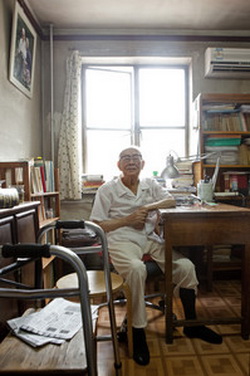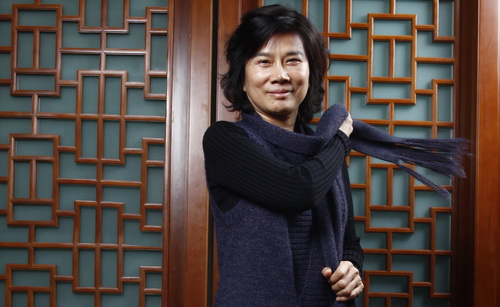

Highlights from the EO print edition, No. 511, March 21, 2011
Central Government Fund Transfers to Local Governments to be Adjusted
News, page 3
~ According to information obtained by the EO, the central government is planning to make minor changes to the way funds are transfered to local governments over the coming 5 years.
~ Due to the inability of many local-level governments to raise enough revenue to cover budgeted fiscal spending, the central government plans to raise the amount of regular transfers that are made over the short term while reducing the size of one-off special purpose transfer payments.
~ Over the medium- to long-term, the central government is researching ways in which it can alter the taxation system so that local governments can collect a larger share of revenue.
~ The adjustment will help to ensure that spending connected to some of the major policy initiatives included in the latest 5-year plan (spending on social housing, water infrastructure and health reform) will be implemented evenly across the country and will not be effected by the inability of some local jurisdictions to match central government investment.
~ Signs of a shift towards regular transfers are already evident, with over 1.7 tillion yuan of the more than 10 trillion yuan in total spending outlined in the 2011 budget devoted to regular transfers, while only 1.49 trillion yuan will be transferred for specific projects.
~ A source familiar with the situation has also told the EO that discussions about longer-term solutions involving changes to the way tax revenue is shared between central and local governments, has already progressed from academic circles to an issue that is being considered by policy makers.
Original article: [Chinese]

The Future of China's GM Industry
News, page 5
~ Recently, Chen Mengshan, the chief economist at China's Ministry of Agriculture, stirred debate by stating that over the next 5 years, China will push forward with plans to begin cultivating GM crops.
~ Last week, the EO sat down with Huang Dafang, the head of the Biotechnology Research Institute at China's Academy of Agricultural Sciences (CAAS). We asked Huang about the safety of genetically modified (GM) food and whether China's agricultural industry was ready to make the shift to the widespread cultivation of GM crops?
~ Huang argued that although China has witnessed seven consecutive years of growth in terms of the output of agricultural produce, recent price instability caused by droughts has exposed the underlying weakness in terms of the country's ability to ensure a steady and sufficient supply of grain and cereal.
~ Huang goes on to advocate the immediate introduction of certain mature GM technologies that have already passed rigid safety checks and are internationally competitive.
~ Huang believes that over the next 3-5 years, China can work on producing new varieties of GM crops and establish a GM industry.
Original article: [Chinese]
The Puzzle of Funding Social Housing Construction
News, page 6
~ Chen Xiansen, the head of Anhui province's finance bureau, complained to the EO this week about the huge amount of pressure various levels of government in Anhui were under to raise the 6 to 8 billion yuan in funds that the central government has called for to match investment in the construction of 400,000 units of social or government-subsized housing.
~ The target for the province is only a small part of the central government's grand plan to construct over 10 million units of social housing around the country this year and 36 million units nation wide over the coming 5 years.
~ However, another official from the Ministry of Housing and Urban-Rural Development (MOHURD) told the EO that these complaints of pressure were a common response among local government officials and that last year, despite similar claims of an excessive burden, local governments were able to match central government funds and actually exceeded the national goal of constructing 5.8 million units of subsidized housing.
~ Qi Ji, the deputy head of MOHURD, told journalists at this year's "Two Sessions" that he was confident that the 1.4 trillion yuan in investment need to fund the ambitious construction target could be met. However, aside from approximately 500 billion yuan in investment that is coming from both central (103 billion) and local government (400 billion) coffers, more than 800 billion yuan of additional investment needs to be raised from elsewhere.
~ According to the China Banking Regulatory Commission figures, about 220 billion yuan in loans were issued to fund the construction of social housing last year, accounting for approximately 30% of the total 750 billion yuan invested in public housing. A source at the commission also assured the EO that banks would be able to provide the necessary loans this year too.
~ One thing to watch out for is the amount of lending that is devoted to public rental housing as opposed to other kinds of social housing that are constructed in order to be sold. A banker at a large commercial state-owned bank told the EO that banks maybe unwilling to lend to those who are investing in the construction of public rental housing as the returns are lower and take longer to recoup.
Original article: [Chinese]
New Approach to Improving Work Conditions Among Producers of Luxury Products in China
Corporation, page 29
~ Global brands that rely on Chinese factories to help assemble their prodcuts are looking at new ways to improve efficiency and safety standards at these factories.
~ Burberry、LeCoq Sportif and other famous international brands are looking to move from reliance on occasional visits from their own employees aimed at auditing conditions at the factory to utilizing third party "advisers" that oversee the transformation of the factories in accordance with certain conditions.
~ Though factories are not forced to change, if they do, they're more likely to get orders from these global brands who need to consider what pressure from various consumer groups, labour organizations and other NGOs can do to their brands reputation.
~ Advisers ensure that factories improve the working environment, cut back on overtime and pay more attention to the welfare of their workers.
~ According to the advisers, changes to the way the factories are manages also helps to improve efficiency.
Original article: [Chinese]
 Interview with Zhou Youguang
Interview with Zhou Youguang
Observer, page 42
~ The EO sits down and talks with 106 year-old Chinese linguist Zhou Youguang, who's also known as the father of pinyin.
~ Born in Jiangsu province in 1905, Zhou has witnessed much of China's modern history first hand. Before becoming a linguist in 1955, Zhou was an economist.
~ Since he retired over 20 years ago, Zhou has moved away from linguistics and has written more of history and culture.
~ In this interview, Zhou discusses the Xinhai revolution that overthrew the Qing Dynasty, he also offers his views on the Republican government era.
Original article: [Chinese]

Interview with Dong Mingzhu
Business Review, page 51
~ The EO sits down and talks with the 56-year old president of Gree, one of China's leading makers of air-conditioners.
Original article:[Chinese]

